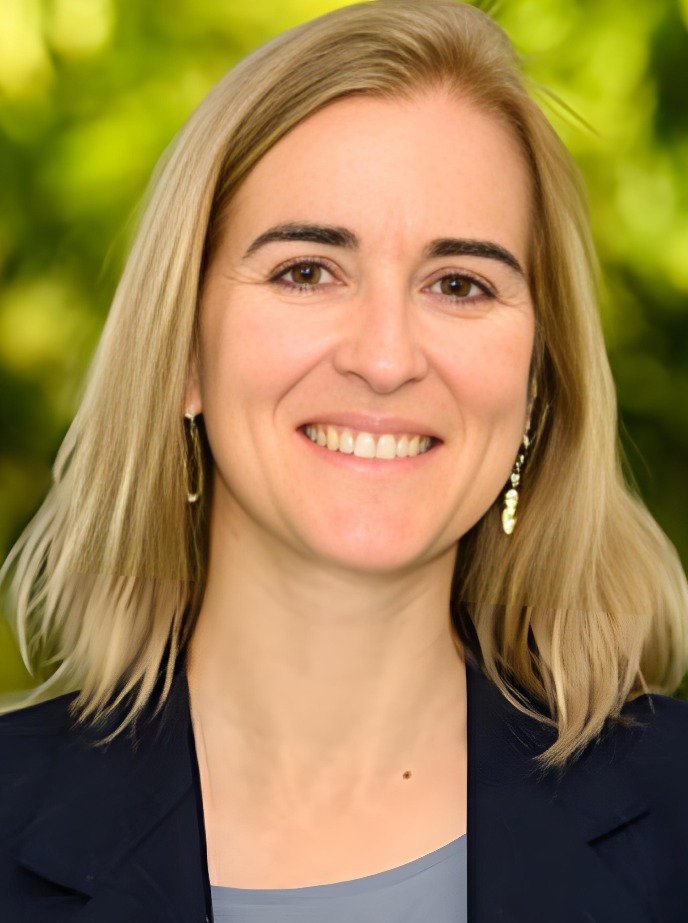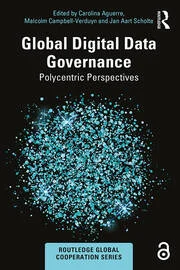'A polycentric approach makes it more challenging for regimes to control the global internet.'| Interview with dr. Carolina Aguerre

The internet began as a 'free world,' where data flowed globally without state control. Over time, these data streams have grown and become intertwined with almost every aspect of our lives. Governments and organizations are now striving to manage these data flows, which brings unprecedented political, economic, and cultural power. What does this mean for the future?
Aguerre: Global Digital Data Governance: Polycentric Perspectives is written by an international and interdisciplinary team of specialists in communication, law, technology, digital trade, and more. It explores contemporary digital data governance, emphasizing the need for cross-sectoral and interdisciplinary cooperation to adapt to the rapidly evolving technological landscape.
Most theories around global digital data governance are fragmented, focusing on specific actors, norms, processes, or disciplinary approaches. This book advocates for a polycentric approach, allowing readers to consider the issue across multiple disciplines and scales. We take a broad definition of digital data to address various problems in different technologies within the digitally networked space, including the internet, artificial intelligence, blockchain, and others.
What was the origin of this book? How did you come together to write it?
We began discussing this project in 2020, during the pandemic, with Malcolm Campbell-Verduyn (UG) and Jan Aart Scholte at the Center for Global Cooperation Research. We talked about how data is transforming governance not just around the internet, but in all forms of governance. Scholte suggested we use polycentric theory to explore this. In 2021, we organized workshops and developed the manuscript from there.
dr. Carolina Aguerre is an Associate Professor at Universidad Católica del Uruguay, Honorary Co-Director at the Centro de Estudios en Tecnología y Sociedad (CETYS) at Universidad de San Andrés in Argentina. She was affiliated as a researcher to the Center for Global Cooperation Research, University of Duisburg-Essen between 2020-2023. Her work has been published in different journals and she has participated in policy environments, including the Internet Governance Forum, the Global Partnership on AI and UNESCO.

The book discusses the future of data governance. What are the main issues and changes?
The main issue is how data is regulated differently worldwide, with varying conceptions among different actors and stakeholders, whether from the private sector or civil society. Data shapes how we think, understand the world, and measure success. For example, the Sustainable Development Goals (SDGs) are crucial for global justice and equal opportunities. However, the collection and management of data differ significantly based on who collects it and how it is managed. Power dynamics are crucial here. Data collection should focus not just on quantity but also on its impact on people. Data collection is also unevenly distributed, with parts of the world barely represented on the 'data map.'
The authors in our book advocate for a more community-oriented approach to data management, recognizing the importance of local knowledge. Data generated by citizens, not just by large corporations and governments, should play a role, enabling a more inclusive and equitable approach to data collection. A holistic approach is needed, considering power dynamics and local communities.
Can you give an example of new data usage trends?
One example is Clearview AI, a company specializing in facial recognition. It scrapes images and associated information from the internet using artificial intelligence. This private sector company sells its data to other companies and governments. They can identify billions of people, and law enforcement agencies in many countries use this tool to identify suspects or criminals without clear legal frameworks in place. This presents new challenges for legislation, as certain actors and companies often move faster than political bodies.
It seems the private sector, especially big internet companies, holds significant power. Can you elaborate?
Indeed, a handful of transnational platform companies largely control the production, circulation, and distribution of digital data globally. For instance, at the end of 2022, Google held an 85% market share in the global search engine market. Amazon Web Services, Microsoft Azure, and Google Cloud together held 65% of the global market for cloud infrastructure services at the beginning of 2023. Although these platforms have a global reach, their operations are mainly centered in the United States.
How does this contrast with other regions like China?
Our book also examines different regimes. We explore how various political regimes have different conceptions of data and approaches to its usage. For instance, regimes in China or Russia may focus on controlling the data flowing in and out of the country.
We favor a polycentric approach, which means a world with multiple centers of power and authority beyond national jurisdictions. This makes it more challenging for regimes like China and Russia to control the global internet. Polycentricity allows for freedom and diversity, even in times of increasing authoritarianism, where you'll see more control and less power diversification.
In some cases, a more monocentric control might be theoretically necessary, for example, if the internet becomes an uncontrollable space of cyberattacks and disinformation. However, polycentricity brings more diversity and voices. The EU and many countries have implemented data protection laws and policies to protect user data and rights. While this represents a centralized authority, it doesn't hold all the power. Even if one wished to organize everything under a single center, it seems impossible to me.
Booklaunch
|
When:
|
Fr 31-05-2024, 11:00 - 13:00
|
|
Where:
|
House of Connections, Grote Markt 21 Groningen
|
Further reading
Open Acces version of the book:
More news
-
15 September 2025
Successful visit to the UG by Rector of Institut Teknologi Bandung

